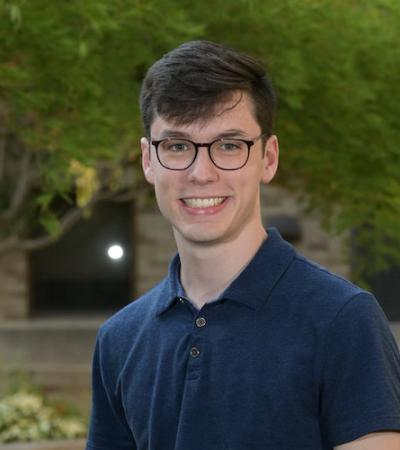Perspectives on the Chilean Constitution
Experiencing the World Fellowships
Project: Chile
Adviser: Samuel Valenzuela
Final Report: Santiago, Chile. Summer 2022
Although I came to Santiago primarily to collect the perspectives of experts concerning the constitutional process, after my first few days walking around the city I quickly saw that this moment in the history of Chile was never going to be relegated solely to discussions behind closed doors. Propaganda in the form of posters and graffiti for both the Apruebo (approve) and Rechazo (reject) covered the city along with the remnants of the Estallido Social (a series of protests) in 2019. Copies of the proposed constitution were being sold by street vendors right next to kebabs and empanadas, often with long lines. I bought my first draft of the text in this way, and it made me laugh reflecting on whether Americans would ever wait in line to purchase a constitution. Reading the 160 page document is no small task, yet in the metro and on the street I frequently saw copies of the purple booklet being read by Chileans faithfully fulfilling their civic duty of informing themselves before the exit plebiscite. Demonstrators on both sides took to the streets peacefully to advocate for the Apruebo or the Rechazo. The citizens of Chile clearly recognize the importance of this vote to determine the course of their country.
What was especially rewarding about my time was being able to talk to people from diverse sectors, often in their homes or places of work, including lawyers, professors, public opinion experts, church leaders, former politicians and functionaries, judges, and members of the Constitutional Convention, from the politically left, right, and center. Although disagreements were plenty, some insights arose that crossed political, generational, and sectoral lines. Firstly, that there is no going back to politics as normal after the Estallido Social—a paradigm shift has occurred, resulting in a shared sense that the people have left behind a constitution with illegitimate origins and entrenched subsidiarity that has resulted in widespread precarity in education, health, and pensions. Second, I encountered a sober recognition that at some level the constitutional convention was a missed opportunity for consensus and unity. Nearly eighty percent of Chileans voted to initiate the constitutional convention, yet current surveys show the option to approve the new text (Apruebo) in the forty percents. Even if the Apruebo wins, Chile will end up more polarized than at the beginning of the process. Third, no matter which option wins, it seems that gender parity within government institutions will eventually make it into Chile’s constitution. And finally, whatever the result of the plebiscite, the constitutional process can be said to still be in its beginning stages. If the Apruebo wins, it will take years of legal debate and legislation to implement all the changes. If the Rechazo wins, there will most likely be a new election of delegates and a new convention to put forth another document and exit plebiscite, a process that would likely take at least until 2024 to complete. But the light at the end of the tunnel is that perhaps a second convention could produce a document that builds consensus and unity among Chileans.
There were several challenges during my time in Santiago, primarily speaking Spanish. I surprisingly left my first interview with lots of confidence; I could understand almost everything the professor I was talking with was saying. The next few interviews destroyed that confidence almost entirely: the accents got thicker, the voices quieter, the environments more noisy. Slowly but surely I improved, and after just two and a half months I now have little fear at misunderstanding what someone is saying or not being able to express myself. There were also challenges involved with my research participants. Often I would not receive responses for weeks, including from people who had previously agreed to meet with me. I had a real fear of all my leads going cold and not having anywhere to go with the project, but luckily the responses ticked up in the last week and a half, so that I was interviewing someone almost every weekday.
Since I will be in Chile until the end of December, I have the unique opportunity of conducting more interviews after the result of the plebiscite on September 4th. In the second half of the semester I will also be taking part in a law course at the Pontificía Universidad Católica called “Current Constitutional Debates,” co-taught by an expert in constitutional law and a former member of the convention. Through these opportunities, I hope to return to Notre Dame with a deep understanding of this moment in the history of Chilean constitutionalism, which ideally will inspire a senior thesis for my philosophy major and for the Kellogg Institut






